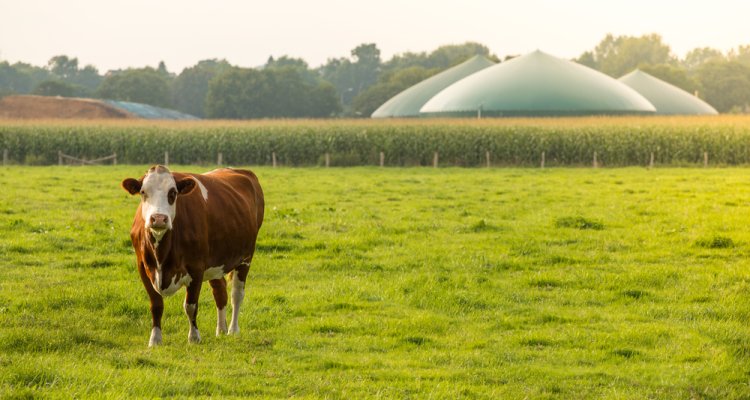
News
Mono fermentation becoming economically viable
Fermenting manure into biogas is in line with Dutch ambitions to increase the sustainability of energy production and close mineral cycles. Calculations carried out in Zoeterwoude as part of the Green Circles initiative show that it may be economically viable for farmers under certain conditions.
“The Netherlands would like to develop a circular economy, and manure fermentation is in line with this goal,” says scientist Edo Gies from Alterra Wageningen UR. “Fermentation generates sustainable energy. Moreover, as digestate remains from mono fermentation have a similar composition to manure, it can also be used on the land. With the Dutch Ministry of Economic Affairs striving for fermentation within the framework of the Energy Agreement, we are examining whether it can actually be profitable for farmers to invest in the technology. In addition, fermentation can result in a considerable reduction in greenhouse gases.”
Green Circles
Wageningen UR, Heineken and the Province of South Holland have joined forces within the Green Circles initiative to develop a climate-neutral beer brewery in Zoeterwoude via the use of biogas, among other technologies. Gies: “Heineken is currently using natural gas in the brewing process, but would like to use biogas from the immediate surroundings too. This is why we looked into whether mono fermentation could be viable, and, indeed, it is.”
Lower investment costs for fermentation
At its facilities in Zoeterwoude, Heineken could buy partially purified biogas from a dairy farm close by. “This could save the farmer a lot of money as he wouldn’t have to convert the crude biogas into natural gas quality himself,” adds Gies. Mono fermentation will be even more interesting to farmers if the investment costs for the fermentation system can be reduced, something which Gies says the Dutch Ministry of Economic Affairs is working on. “Mono fermentation is not currently profitable without subsidies.” Gies and his colleagues are studying whether the energy yield can be increased by adding up to five per cent of malt to the animal manure in the fermenter.
Closing the mineral cycle
As well as contributing to increased sustainability in energy production, fermentation is also in line with the goal of closing the mineral cycle. “Digestate, the manure that remains after fermentation, has a similar mineral composition as non-fermented manure,” explains Gies. “It also has the same agricultural effect. The advantage of digestate from a mono fermenter is that it does not increase the amount of animal manure. In co-fermentation the entire fermented product is considered to be animal manure, including the digestate derived from the co-products.”
Innovation scheme
If mono fermentation has potential in Zoeterwoude, does the same apply to other locations in the Netherlands? Gies believes so. “Mono fermentation can be especially interesting to larger dairy farms with over 200 cows. But it depends on the implementation of the announced innovation scheme by the Miistry of Economic Affairs. Without its support the yield will not be positive as yet, especially as mono fermentation systems can easily cost up to 800,000 euros.”
Another relevant issue is whether there is a buyer, such as Heineken, nearby, giving farmers the assurance that they can structurally sell their crude biogas. Gies has seen the interest from farmers and potential buyers grow. “We would like to help bring these parties together.”